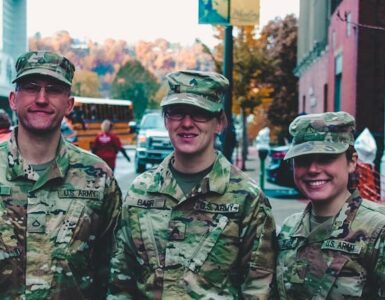“The Power of FAFSA: Middle Class Wealth Generation” advanced to the final round of the Alliance for the American Dream’s competition to find ideas that increase net income for middle-class households.
Stemming from Schmidt Futures, a venture facility for public benefit, the Alliance for the American Dream is a “network of communities, each anchored by a public research university that will provide access to capital and access to market for new ideas to support distressed communities locally.”
The Alliance for the American Dream originally awarded ASU $1.5 million to research a new way to restore prosperity to the American middle class, help reduce poverty and increase national competitiveness.
Partnering with four public universities in total, the Alliance gave the mission to cultivate at least ten ideas to increase net income by ten percent for 10,000 local middle-class households by 2020, the Power of FAFSA was one of ASU’s.
The Power of FAFSA team – comprised of College Success Arizona, Achieve60AZ, the Arizona Commission on Postsecondary Education, Helios, Mesa Public Schools, AzCAN, and ASU’s Education Outreach and Student Services and Enrollment Services – is working to make significant progress on the key educational goal in Arizona of raising the state’s Free Application for Federal Student Aid (FAFSA) competition rate among high school seniors to 50 percent.
In late Jan. 2019, members of the Alliance met in Phoenix for the pitch competition of 12 teams from the four public universities. Five of the ideas, including the Power of FAFSA: Middle Class Wealth Generation, were chosen to advance.
The team plans to create a chatbot that is powered by conversational artificial intelligence that is projected to help 10,000 students and families complete the FAFSA and receive an average federal award of nearly $10,000 annually.
“The project will be one of the first in the nation that would also add state of the art Artificial Intelligence technology as a tool for student and families to use at any time and from any device to receive assistance completing the form,” Rich Nickel, president and CEO of College Success Arizona said.
According to ASU, if the project’s goal is achieved it would exceed the challenge goal and increase families’ net income by an estimated 16 percent and raise the FAFSA completion rate to 57 percent.
“Many people in Arizona do not realize the tremendous power of the FAFSA. This project will activate a campaign to alert people to the great economic benefits that the FAFSA brings to individuals and our community, and also help high-school seniors and their family complete and submit the FAFSA,” Nickel said.
“By 2020, about 68 percent of all jobs in Arizona will require postsecondary education,” ASU President Michael M. Crow said in a statement. “The FAFSA team is seeking to help middle-class families prepare by opening different education pathways into universities, community colleges, trade schools and other institutions.”
The other finalists include an Ohio State University proposal to support first-time homebuyers with the costs that come with the first year of homeownership, a University of Utah proposal supporting community revitalization in coal-mining towns facing economic distress, and two from University of Wisconsin-Madison for legal interventions and child care.
The teams will be pitching their ideas this summer for the $1 million reward.
















Add comment